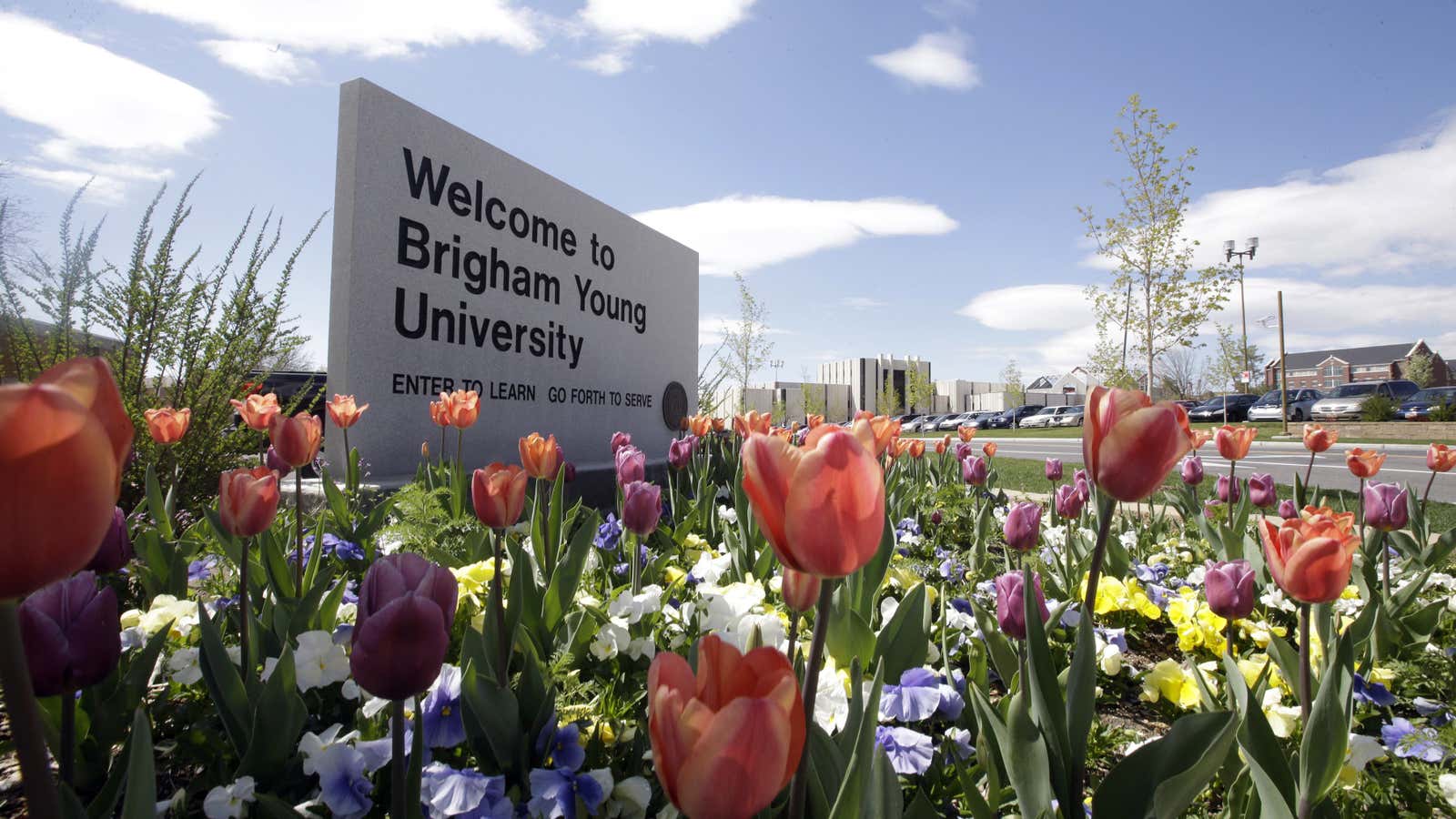Matt Easton is a political science whiz, slam poet, practicing Mormon, and, in the words of his Brigham Young University faculty advisor, John Holbein, “a gem of a human being.” As of yesterday, he is also proudly, publicly, openly gay.
After being named political science valedictorian of the Church of Jesus Christ of Latter-day Saints university, Easton addressed a packed assembly hall: “I stand before my family, friends, and graduating class today to say that I am proud to be a gay son of God,” he said. “I am not broken. I am loved and important in the plan of our Great Creator. Each of us are.”
As the audience broke forth into cheers and whoops, he continued: “Four years ago, it would have been impossible for me to imagine that I would come out to my entire college. It is a phenomenal feeling. And it is a victory for me in and of itself.” Though Easton had come out to close family and friends individually, he later wrote on Twitter, this was the first time he publicly acknowledged his sexuality. He praised the college for having given him the foundation to tackle challenges both spiritual and secular, as well as for supporting his faith.
It is hard to overstate to what extent this speech is historic—and brave. Though openly LGBT students may attend BYU, located in Provo, Utah, its restrictive honor code forbids “homosexual behavior” and “all forms of physical intimacy that give expression to homosexual feelings.” Acting on these feelings can, and does, result in expulsion from the university. (Heterosexual couples found to have engaged in “sexual touching” also face punishment, which may include mandatory worship, being placed on probation, or having their diplomas withheld.)
The university’s policy broadly echoes that of the wider Mormon community. From 2015 until earlier this month, as the Advocate reports, the Mormon church’s so-called “exclusion policy” remained in place. Human rights attorney Kate Kelly, who is a queer Mormon, writes: “It famously stated that all gay people in relationships were apostates and children of same-sex couples could not be blessed or baptized as Mormon until they turned 18 and disavowed their parents. Current Mormon prophet Russell M. Nelson specifically said this policy was divinely inspired and the ‘will of the Lord.'” In the three months after the policy was adopted, according to LDS parent support group Mama Dragons, more than 30 young people took their own lives.
For many, the revocation of the policy, which now allows children of same-sex couples to be baptized, is only the beginning. Same-sex marriage is still considered “a serious transgression,” church president president Dallin H. Oaks told the general assembly on April 4, even while it will no longer “be treated as apostasy for purposes of Church discipline.” LGBTQ people and their allies have called for a formal apology from the church, as well as a change in the doctrinal stance that gay relationships are sin, and a more inclusive approach for women and trans people alike. These demands are unlikely to be met any time soon in a church in which doctrinal disputes on issues as seemingly minor as caffeinated soda have historically taken decades to resolve.
Still, that Easton felt able and emboldened to speak out in front of thousands of his peers—and that his bravery was met with an unambiguously warm reception from Mormons and non-Mormons alike—speaks to the start of a sea change. Comments on the YouTube video of Easton’s speech were emotional and proud: “This gives me hope! You are whole and wonderful”; “I don’t know you, but I got a little emotional watching this”; “I couldn’t have imagined this when I graduated in ’09. Guts and poise.”
